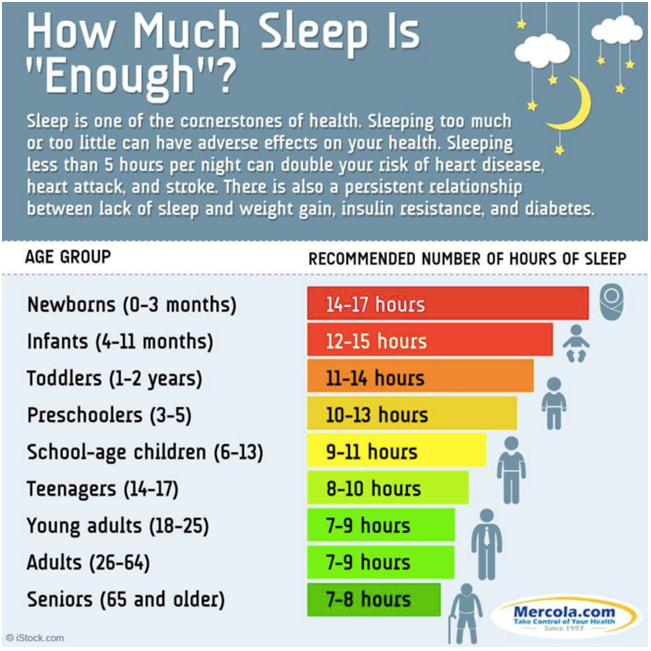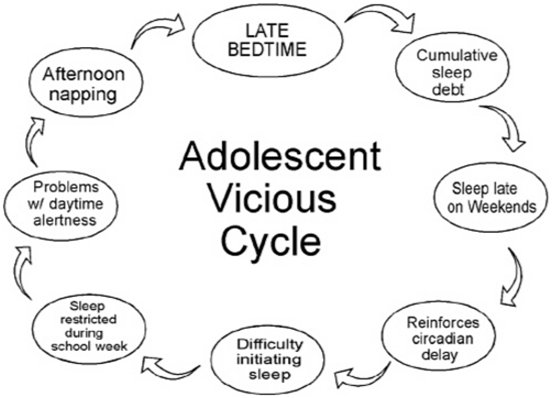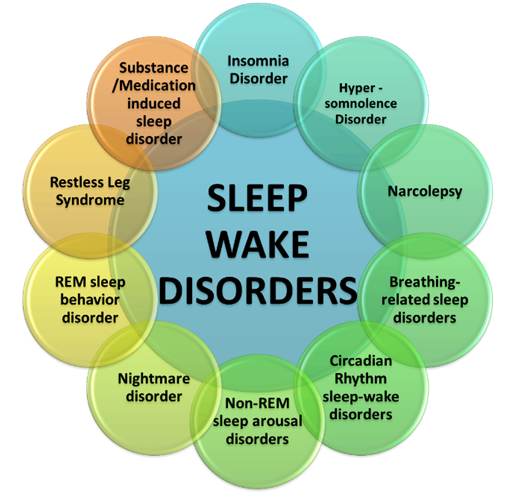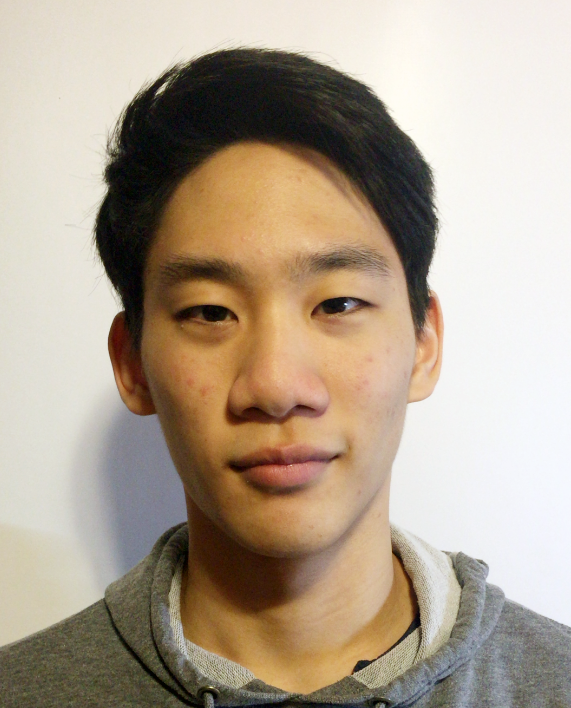
[Source: iStock- mercola.com]
Getting inadequate sleep has been a serious problem for teenagers, primarily high school students. More and more parents are worried about their children not getting a sufficient amount of sleep. Some researchers merely attribute the cause to the usage of electronics before going to bed. It is true that some teenagers spend too much time on their smartphones checking their SNS accounts and chatting with friends before actually falling sleep. However, based on my experience as a high school student, the overwhelming amount of school workis the primary reason that deprives students of their sleep.
Enrolling in high school is probably one of the most important periods in a student’slife. In contrast to elementary or middle schools where learning is mostly enjoyable, so many teenagers in high schools suffer from the rigorous and demanding academic workload that they have to endure for four years. According to Andrew Sprinkle who is a Junior in Bullis School, it is difficult for students to manage their academics and decent social lives.
“My school starts at 8 in the morning and ends at around 3:30 in the afternoon. My friends and I take about seven to eight classes a day, and we have to play sports every day for an hour to an hour and a half,” says Andrew.
Taking seven to eight classes is extremely demanding because students have to review what they learned in classes, do homework, and preview some of the materials to actively participate. Though some students still keep up the good grades while taking seven to eight classes a day including Honors and Advanced Placement, they are pushing themselves far beyond their physical limitations.
“When I come back home after playing sports, it is normally 5 to 5:30 P.M. At the dinner table, I sometimes resist having any food because I feel so lethargic that I just want to go to bed,” Andrew sighs.

[Source: The National Academies Press]
As a high school student who goes to a boarding school, I fully understand the circumstances that Andrew is facing right now. I am a Junior and currently taking a total of seven classes with two AP courses. The normal class schedule ends at 3:30 P.M, and I play sports every term from 4 to 5:30 P.M. When I eat dinner and take a shower, it is usually 7, and I immediately start working on my homework even though the study-hall starts at 8. Sometimes I cook some instant noodles in the middle of the night not only because I am hungry but also because I want to stay awake to finish my work. Since maintaining a good GPA is the most important component in the future college admission process, I barely get five hours of sleep when I have big assignments or tests coming up and try to stay alert by drinking multiple cups of coffee, although I am aware that caffeine is not good for a teenager. The pressure of maintainingperfect grades and good standardized tests scores always makes me drive myself harder.
Unfortunately, the excessive amount of workload in high school is causing serious sleeping disorders. According to Ryan Donaldson, a Psychology teacher at Pomfret School, the deprivation of sleep can cause dyssomnias.

Source: [National Register of Health Service Psychologists]
“Many high school students nowadays experience insomnia, which is a sleeping disorder of being unable to fall asleep or maintain sleep. Since many students’ circadian rhythms have been disrupted by inconsistent life patterns, they sometimes feel extremely lethargic and weary during the mornings and relatively alert duringthe night,” says Donaldson.
Mr. Donaldson further commented that in some serious cases, students suffer from both micro-sleep spells and narcolepsy with symptoms of falling asleep for a few minutes out of nowhere.Another common disorder is sleep apnea, which occurs when people repeatedly stop breathing while sleeping. These disorders are detrimental because they can engender some dangerous situations, such as falling asleep while driving or while crossing a crosswalk.
As I pondered for a practical solution to reduce the amount of work that high school students are experiencing to have a more balanced healthy life style, I came up with the idea of starting school later. Since most students neither receive enough sleep nor eat a decent breakfast, starting the classes about an hour or two later would give students enough time to sleep and eat breakfast. To make up for the missing one or two hours everyday, we can extend the school year for about a month and have only two months of summer break instead. If this schedule actually comes true for even a week, teachers would no longer see half of their students falling asleep in class in the first period.

Youngjae (Aaron) Kim
Grade: 11th
Pomfret School
Dear Youngjae:
This is a very interesting article about sleep deprivation in the perspective of a high school student. It is true that more students are suffering from insufficient sleep and are showing symptoms of sleeping disorders at a very young age. You also included interviews and statistics which made the article easier to understand and more engaging.
You did well on the following:
- You were able to connect with the readers, especially high school students and teachers to shine light on the problems with sleep deprivation.
- You tried to make the article interesting by inserting quotes, pictures, and graphs.
- You were able to provide an analysis of the problem throughout the writing and suggest a realistic solution towards the end. This was good in the sense that your suggestion was practical in the viewpoint of a high school student.
These are some comments that could help you in the future:
- Practice making the sentences neater. Some of your sentences have colloquial or informal expressions that could be modified into clean and direct style of writing.
- You can make your writing smoother by adding effective transitional word or sentences. Transitional words are extremely important in academic writing and can definitely make your writing stronger and better organized.
- Finally, try to diversify sentence structure instead of using one type of sentence pattern. This could make your writing sound more professional and less monotonous.
Overall, thanks for sharing an interesting article with a realistic issue about sleep. I can’t wait to read more of your articles! Good work, Youngjae!

Linda Kim
http://apply.heraldstudy.com/proofreading_committee.asp

